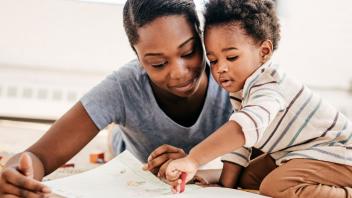Our world continues to grow increasingly complex. We all want our children to succeed, but what exactly does that mean?
Is it introducing academics earlier and earlier? How do we assure a child’s healthy social/emotional growth? Can we help young children live with others who have different backgrounds than their own? Might this imply that children have the ability to put themselves in another’s position?
Maybe it’s all or even none of these. But I do know now that my nearly 4-year-old niece has headed off to preschool, I find myself wondering not only the ‘what’ of her education but the ‘how’. I don’t know how common sense and developmentally appropriate standards for early childhood education will be implemented, but I have high hopes.
I hope that there is time to make play as important as reading and math. Play not only builds intellectual, social and emotional skills , I think it provides an outlet for stress (and kids feel stress just as adults do although young children can’t articulate it).
I hope the environment in which she attends school will be one that encourages curiosity, exploration, questioning, creativity, collaboration and cooperation.
I hope she finds friendships that will last long after preschool.
And I hope that there is time to read books, some to support or complement or introduce what’s going on in the classroom, but some for just plain fun. Books build language, play with words and ideas, create shared experiences, allow readers to experience things beyond the here and now, and even help build empathy.
Our complex world needs talented young people who aren’t afraid to tackle tough issues. It just may start with finding a way for young children to play together.
About the Author
Reading Rockets’ children’s literature expert, Maria Salvadore, brings you into her world as she explores the best ways to use kids’ books both inside — and outside — of the classroom.

